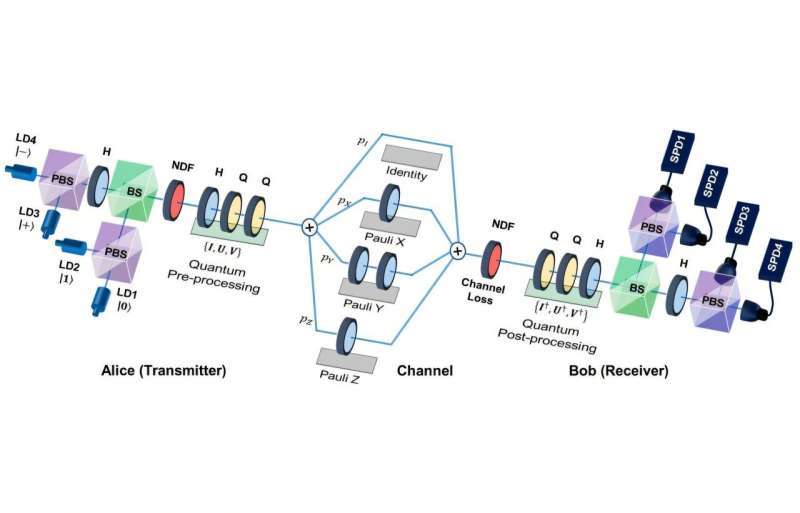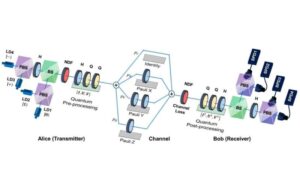
Researchers at the Electronics and Telecommunications Research Institute (ETRI) in South Korea have made significant strides in the field of quantum key distribution (QKD). They have established a new theory of measurement protection (MP) that enables stable QKD without requiring the correction of quantum state measurements. This groundbreaking research was conducted in collaboration with the Korea Advanced Institute of Science and Technology (KAIST) and has been experimentally validated, marking a major advancement in secure communication technology.
The study, published in the IEEE Journal on Selected Areas in Communications, highlights the capacity of this new technology to facilitate stable quantum communication in dynamic environments, such as those encountered in satellites, ships, and drones. Traditional quantum communication systems struggle to maintain stability due to environmental factors that affect the transmission of quantum states. This research demonstrates that it is possible to achieve reliable quantum information exchange even in motion, overcoming significant challenges previously faced in free-space communication.
Quantum communication relies on transmitting information through the quantum state of light, which can be disrupted by weather and other environmental changes. The researchers’ findings indicate that stable key distribution can be accomplished regardless of channel conditions, provided that the error rate among received quantum bits remains below 20.7%. This is a notable improvement over existing systems, which require continuous calibration of measurement devices to adapt to shifting conditions.
The experimental work was spearheaded by Professor Bae Jun-woo at KAIST, with practical implementations carried out by ETRI researchers. They utilized a 100 MHz light source, specifically a Vertical-Cavity Surface-Emitting Laser (VCSEL), to generate single-photon pulses. The team successfully demonstrated long-distance free-space transmission over a 10-meter path with losses reaching up to 30 dB. They simulated challenging conditions by introducing various polarization noises and verified successful quantum transmission and measurement.
This research not only enhances the potential for secure satellite-to-ground communication but also opens avenues for drone and maritime communications, where stable key generation is crucial. The success of the MP-based QKD system represents a significant step forward in quantum communication, eliminating the need for additional measurement compensation.
In addition to their primary findings, ETRI researchers have also tackled the issue of polarization-dependent loss, a major obstacle in the practical application of QKD. By presenting an experimental compensation method, they aim to improve the performance of integrated chip-based QKD systems, which are considered the next generation of technology to replace larger bulk-optics systems. The findings regarding polarization-dependent loss were also featured in a cover paper in the journal Advanced Quantum Technologies.
According to Lim Kyong Chun, senior researcher at ETRI’s Quantum Communication Research Division, further research on integrated photonic chips is essential for expanding the QKD market. The implementation of QKD that is independent of channel status variations significantly enhances the flexibility of quantum cryptography. Assistant Vice President Youn Chun Ju emphasized the importance of this technology in establishing a foundation for a global quantum network.
Professor Bae Jun-woo expressed optimism about the future of quantum secure communication, stating that this achievement will serve as a decisive turning point, enabling reliable communication even in complex environments.
The implications of this research are vast, potentially influencing various sectors and paving the way for more robust security in communications. As quantum technology continues to evolve, the advancements made by these researchers will play a crucial role in shaping the future of secure information transmission.







